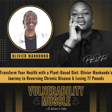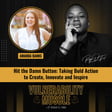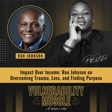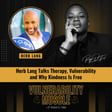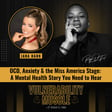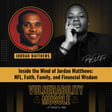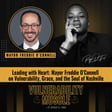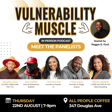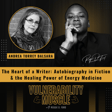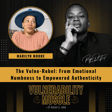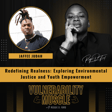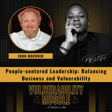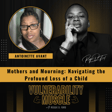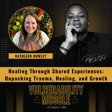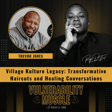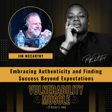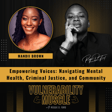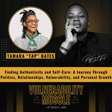
014 - Survive the Breakup and Preventing Others with Denis Dixon
Join host Reggie D. Ford in a profound conversation with Denise as they navigate the journey towards inner peace and self-discovery. Denise shares her experiences of success, failure, shame, and self-acceptance, unveiling the layers of growth and learning she encounters daily. From childhood trauma to societal expectations, Denise explores the complexities of identity, independence, and genuine connection. Through their candid exchange, Reggie and Denise unravel the importance of embracing vulnerability and owning one's journey towards healing and confidence. They delve into the intricacies of relationships, with Denise opening up about the profound impact of her upbringing on her romantic connections and self-perception. From intergenerational trauma to learning self-love after a breakup, they share insights on recognizing toxic patterns and fostering healthy connections. Denise introduces her workbook, "Survive the Breakup and Preventing Others," guiding readers through understanding themselves and preventing recurring relationship patterns through self-reflection. Together, they offer valuable insights into navigating the complexities of human connection.
Highlights:
⭐️ Denise shares insights into the impact of childhood experiences on adult behaviors and coping mechanisms, highlighting the need to confront past traumas for personal healing.
⭐️ The conversation explores the paradox of independence and the human need for connection, as well as societal pressures to conform to rigid gender roles.
⭐️ Reggie and Denise examine the role of relationships in personal growth, emphasizing the value of authentic connections that foster self-awareness and empowerment.
⭐️ Denise reflects on her Jamaican upbringing and the cultural expectations that shaped her sense of identity and resilience.
⭐️ Reggie and Denise discuss the challenges of overcoming self-doubt and imposter syndrome, emphasizing the importance of self-compassion and self-acceptance.
⭐️ Denise reflects on how her relationship with her father shaped her perception of self and influenced her choices in relationships.
⭐️ They explore signs indicating it's time to end a relationship, emphasizing the need to prioritize self-respect and emotional well-being.
⭐️ Denise shares her coping mechanisms post-breakup, including travel and self-reflection.
⭐️ Reggie highlights the importance of self-love and healing from past trauma to break cycles of toxic relationships.
⭐️ They discuss strategies for healing and self-growth, including recognizing and addressing patterns of chaos in relationships.
⭐️ Denise introduces her workbook, "Survive the Breakup and Preventing Others," emphasizing its comprehensive approach to psychosocial healing.
⭐️ Denise reflects on her purpose in life, finding fulfillment in helping others recognize their blind spots and extend grace to themselves.
Connect with Reggie
IG - https://instagram.com/reggiedford
FB - https://facebook.com/reggiedford
LI - https://linkedin.com/in/reggiedford
X - https://twitter.com/reggiedford
YT - https://youtube.com/@reggiedford
Website - https://reggiedford.com
Book - https://amzn.to/487OqJD
Podcast - https://reggiedford.com/vulnerabilitymuscle
Podcast’s IG - https://instagram.com/vulnerabilitymuscle Podcast’s FB
Connect with Denise
Website - https://www.iamdenise.com/
Surviving the Breakup - https://amzn.to/3yincDC
